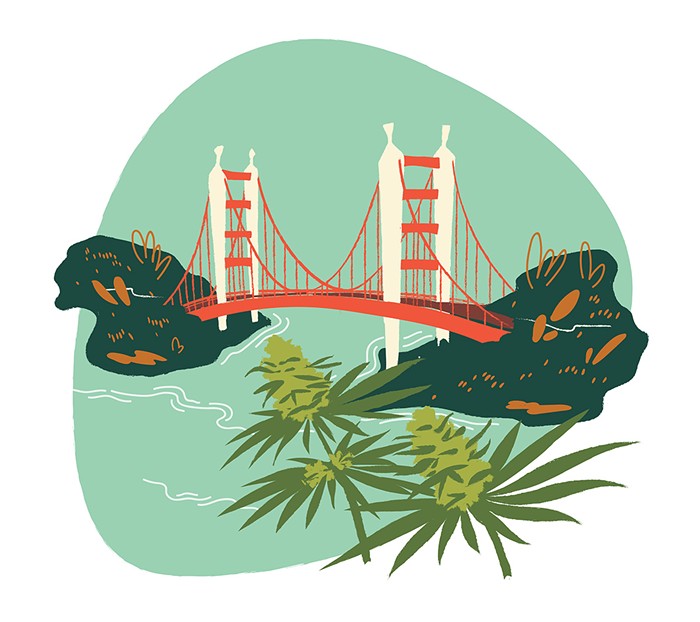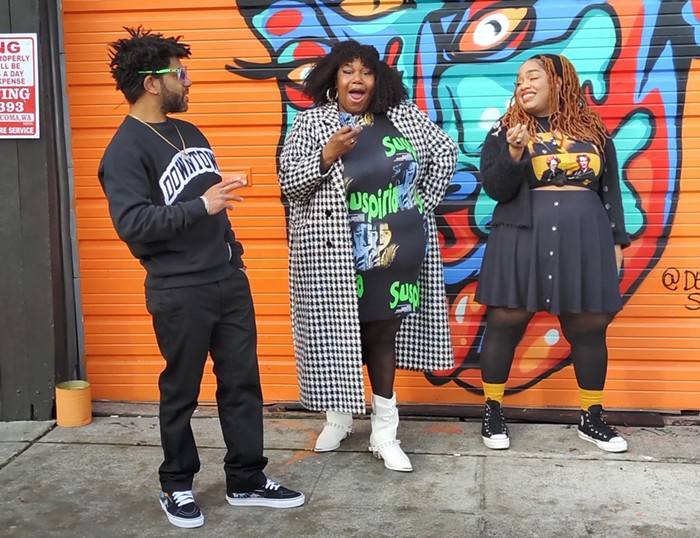There wasn't much of a choice for the US Food and Drug Administration (FDA) when, in the spring of 2018, it was deciding whether or not to give final approval to Epidiolex, a brand-new CBD-based drug. Over multiple randomized, placebo-controlled drug trials, the drug had been administered to 516 people who were suffering from two rare forms of epilepsy. The results spoke for themselves: CBD had reduced the amount and severity of seizures the patients experienced.
The FDA approved Epidiolex. This was, of course, a boon for people who suffer from these disorders, but it also undercut the federal government's prohibition of pot, which the Feds still maintain has a high potential for abuse and no accepted medical use. It's a big deal: By approving Epidiolex, the FDA told the world that the government's history of cannabis prohibition is, in a word, bullshit.
This historic moment was, in many ways, thanks to a bunch of rebellious queers in San Francisco way back when.
Let me explain.
The modern American medical marijuana movement was in large part launched in San Francisco in the 1980s and '90s, when a series of different forces coalesced around pot. In the 1980s, the HIV/AIDS epidemic was advancing through the gay community at a frightening pace, while the US government and the medical community either looked the other way or grossly stigmatized the people with the virus.
Meanwhile, California was already on its way to becoming an international hotbed of cannabis, with hippies using the consistent sun in the remote northern part of the state to breed new and more potent forms of pot, many of which form the staple cultivars sold across the world today. In the midst of these two forces sat San Francisco, an ultra-liberal city that had both a large gay community and a political history of giving the Feds the middle finger.
Unsurprisingly, the city's gay community discovered that pot was hugely helpful in treating the symptoms of HIV/AIDS. One witness to pot's medical value was Dennis Peron, a Vietnam veteran living in San Francisco who saw how pot helped his HIV-positive partner. Peron, a close friend of Harvey Milk, was as much a political organizer as a pothead, and he started the country's first public dispensary, the San Francisco Cannabis Buyers Club, which later played an instrumental role in California's 1996 legalization of medical marijuana.
One person who saw this play out was Mary Lynn Mathre, a registered nurse, who in 1997 published a detailed manifesto of pot's medical qualities and uses. Her book eventually made its way to Geoffrey Guy, a British doctor and scientist, who was inspired to explore pot's medical properties. He eventually started his own company, GW Pharmaceuticals, which acquired a license from the British government to grow and study pot.
Twenty years later, Guy submitted a CBD drug for approval to the FDA that went by the name of—you guessed it—Epidiolex. When the drug was approved by the FDA, the movement started by San Francisco's gay community more than 30 years earlier was complete.
The United States government finally admitted that pot is medicine. The gays knew it all along.

















